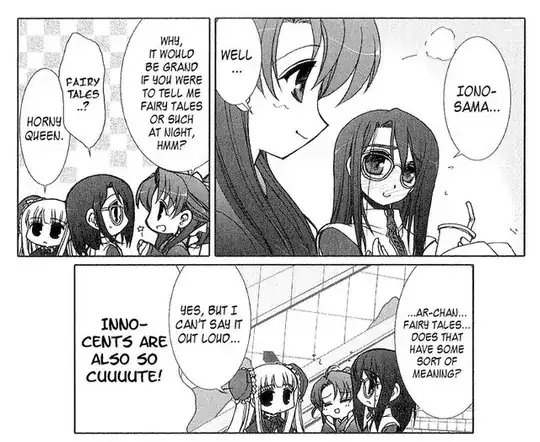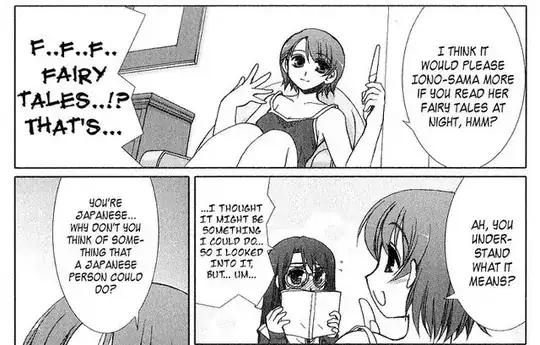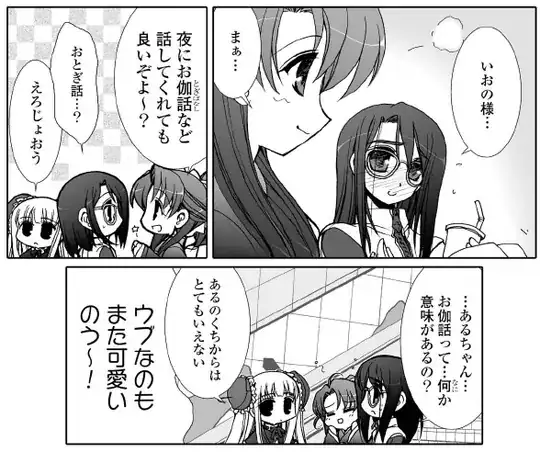In Chapter 2, when Eto is wondering what she could do for Iono-sama (seeing how everyone has unique skills that served her and she didn't have anything), Iono-sama suggests reading fairy tales to her at night, which prompts Arge to call Iono-sama a Horny Queen.
Now at first I would have thought it was the suggestion of Eto being with Iono-sama at night which the explicit nature of the suggestion, but Eto asks Arge if "fairy tales" has that sort of meaning.
Later when Eto and Aida are talking, Aida mentions reading fairy tales to Iono-sama and Eto gets all flustered and says she looked it up suggesting that it's not the fact that it's at night but that Eto would be reading fairy tales which makes it lewd.
After reading the liner notes of Maria Watches Over Us some time ago, I know that some humor in Japanese language comes from puns on how words look very similar but have vastly different meanings only because of one character of the placing of a space.
So I am wondering, why is fairy tales so lewd? Is this some sorta of Japanese language pun?



